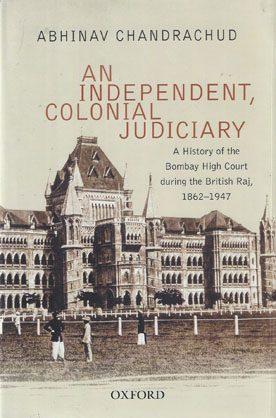
In 2012, the Bombay High Court celebrated the 150th year of its existence. As one of three high courts first set up in colonial India in 1862, it functioned as a court of original and appellate jurisdiction during the British Raj for over 80 years, occupying the topmost rung of the judicial hierarchy in the all-important Bombay Presidency.
Yet, remarkably little is known of how the court functioned during the colonial era. The historiography of the court is quite literally anecdotal. The most well known books written on the history of the court focus on humorous (at times, possibly apocryphal) stories about 'eminent' judges and 'great' lawyers, bordering on hagiography.
Examining the backgrounds and lives of the 83 judges-Britons and Indians-who served on the Bombay High Court during the colonial era, and by exploring the court's colonial past, this book attempts to understand why British colonial institutions like the Bombay High Court flourished even after India became independent. In the process, this book will attempt to unravel complex changes which took place in Indian society, the legal profession, the law, and the legal culture during the colonial era.